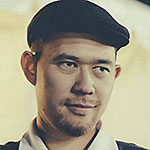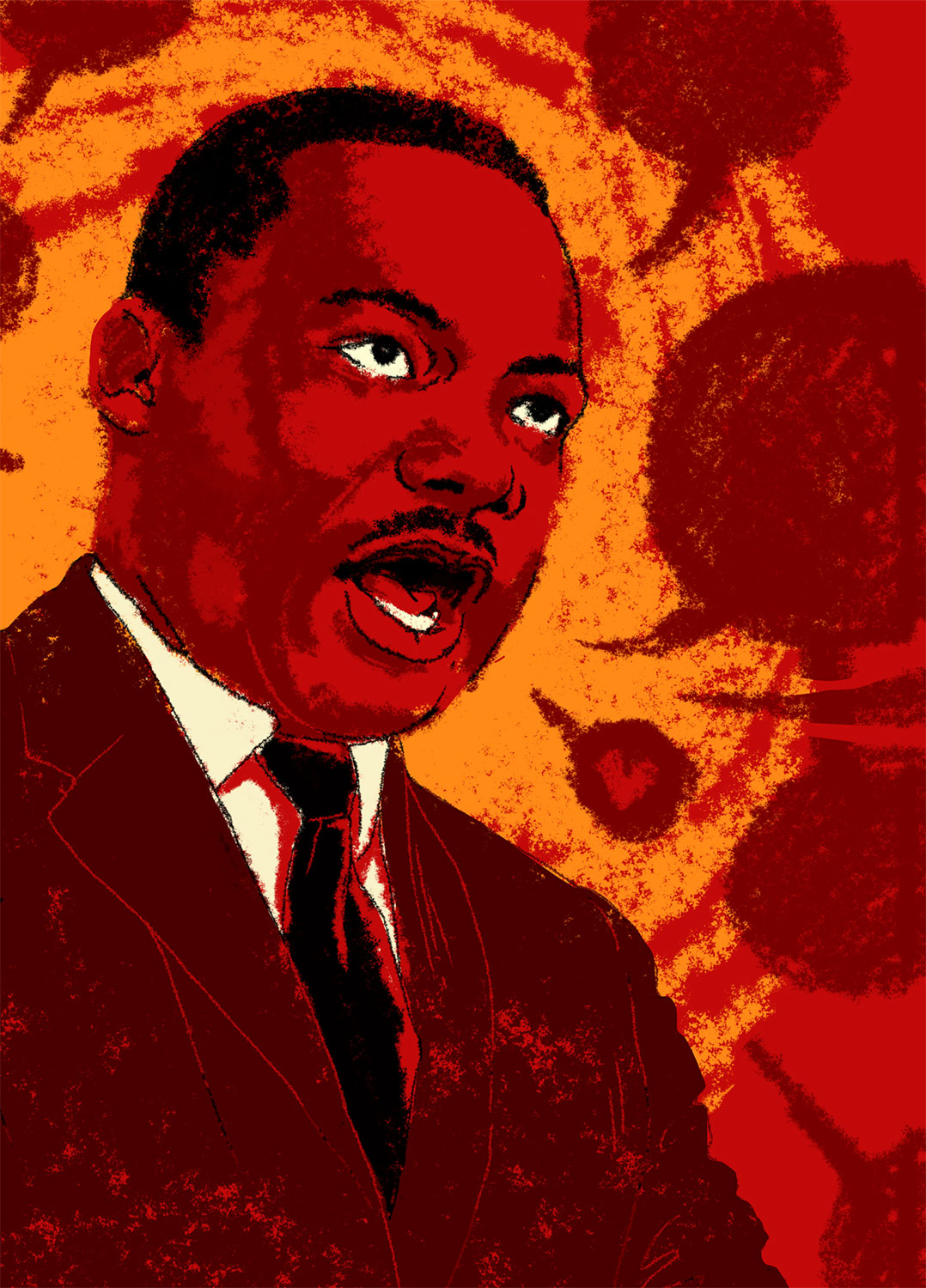
Dr. Hak Joon Lee discusses the biblical significance of Dr. King’s legacy, and what we can learn from his legacy.
When it comes to the life and legacy of Dr. Martin Luther King Jr., we have a tendency to think we know the full extent of what he did and stood for.
I sat down with Dr. Hak Joon Lee, Christian ethics professor at Fuller Theological Seminary in Pasadena, CA for a conversation about the life of Dr. King and how his impact as a peacemaker can inform the Asian American church today.
King, The Unapologetic Christian
Lee’s interest in Dr. King took root during his college years. At the time, South Korea was under military dictatorship and many Christians were citing King’s writings, translating his sermons into Korean, and applying his nonviolent methods for political struggle. When Lee came to the U.S. as an international student, he discovered racism was not only confined to the African American community, but extended to Asian Americans, too. Society, according to Lee, sees Asian Americans as “prominent strangers” and “forever foreigners”.
What made King’s legacy so vital was that he was unapologetically Christian. He learned about nonviolent resistance from Gandhi and was able to provide theological justification to his peacemaking strategy. According to Lee, prior to this, most people approached reconciliation as merely a personal matter between two individuals, but King extended that to the public sphere.
King cast a “vision of global community and used nonviolent resistance to overcome the obstacles of injustice, because injustice is a sin that impedes reconciliation,” said Lee. He noted that King and Gandhi are two men who branded nonviolent peacemaking that inspired grassroots activism like the women’s right movement. This put pressure on government through the use of nonviolent demonstrations that mobilized communities and major cities.
Lee said that peacemaking, negotiation, discussion, and compromise are not just a political issue, but should have deep roots in the spiritual moral dimension as well. And what set King apart was that he used the “power of the gospel” to empower people on a global level, compelling them to take the high road in confronting social evils.
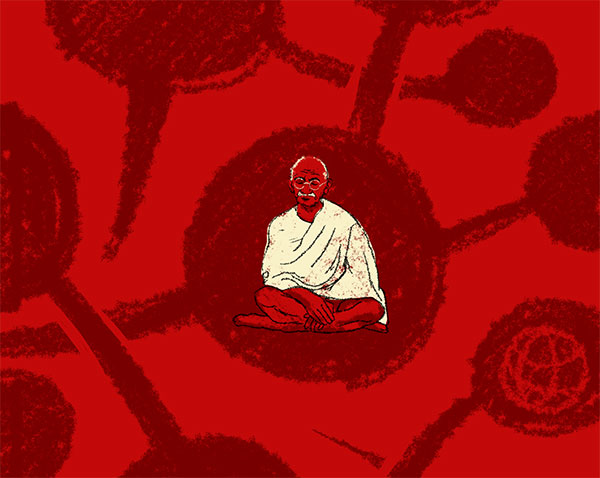
Looking at MLK as a Fixture of the Present
Media and politicians selectively interpret history, limiting the work of King as an achievement of the past. “He’s confined as a civil rights leader because civil rights [is] achieved through legislation. Once the law is on the books, it is done and that chapter is closed to move on to the next one.” But Lee is quick to point out that King was also greatly concerned with poverty and economic justice, which are issues we’ve seen lived out in, for example, the Occupy Movement. A question we must ask ourselves is, are we applying MLK’s legacy in modern society? Are we dealing with conflict resolution in a way that reflects one of the most profound peacemakers of our time?
As Lee puts it, “King was a prophet sent by God ... [and] what happens when [a] nation [refuses] to listen to [a] prophet?”
Working Towards Being Peacemakers
Lee also points out that reconciliation is more than just nitty-gritty negotiation and more than “ [an] exchange of mutual interest ... but it really touches the heart of people, [and works to transform] the hearts of people.”
There is nothing romantic about peacemaking. Instead of sitting safe in our church pews, we can go out into society and confront social evils and injustices locally. We have to know and understand the issues of our day, just as we understand the content in our textbooks. Book knowledge needs to be coupled with socio-political knowledge and married with biblical wisdom in approaching injustice.
Peacemaking is not passive aggressive behavior that seeks to avoid “rocking the boat” or upsetting balance. If we are to really know our rightful place in society, we will rise up with peaceful, nonviolent resistance.
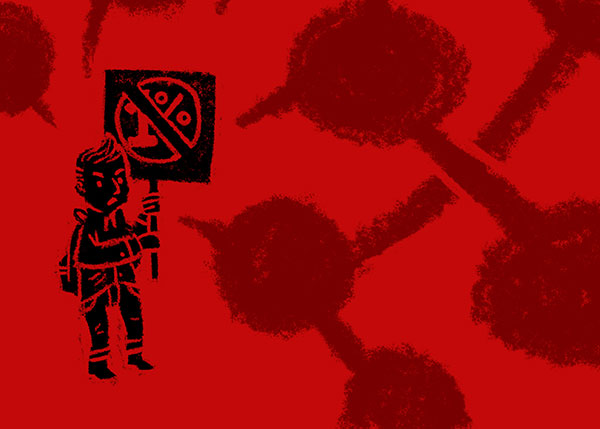
Living Out King’s Legacy as Asian Americans
Lee doesn’t want to feed stereotypes, but most of us can agree that Asians in the U.S are fixated on getting into good schools and living the good old American dream. However, Lee said that this way of life “[lacks a] socio-political dimension” that Asians need to participate in.
While our upbringing teaches us to forfeit political influence in favor of financial security and success that is synonymous with “the good life”, there are ways for us as Asian Americans to bring about social change in a manner that reflects King’s legacy.
Lee points out one good example, which is the growing influence of Asian American Christians on college campuses, whether it’s through InterVarsity or Campus Crusade.
But he also challenges Asian American Christians to look towards other groups as examples of communities that actively seek social change. He asks us to look at African American churches, Jewish synagogues, and Irish Catholics. Religious institutions should be the center of the Asian American civic and social life. Rather than simply emulating white evangelical theology or ministry, Asian American churches need to develop their own social vision and also educate their members with this awareness.
Perhaps living out King’s legacy as a bringer of justice and peace might seem foreign to us, even too aggressive. It can be uncomfortable and it’s not a realm that we often address. Lee said that scripture mentions “justice” more than 1,000 times, but you rarely hear Asian Evangelical churches talking about justice.
However, in reality, it’s an issue that Asian Americans need to familiarize themselves with because injustice is deeply rooted in our history.
Asian Americans have faced discrimination, from the Japanese internment to the Chinese Exclusion Act. Lee sees Asian Americans as the hidden victims of racism and it does not get public attention. But, against Latino or African Americans, they gain more public attention from the media due to greater political power.
Lee calls us to take ownership of our history and look to Dr. King’s influence on the African American church as a map for our own church. After all, something we might overlook is that who King was resulted from the African American church’s influence in his own life as well.
Perhaps one way to start is to look at the state of our economy and how it has impacted the Asian American community. Lee pointed out that “young Asian Americans ... are living in very challenging times of unemployment or underemployment.”
“You may know many Asian Americans with a degree from a [good school] still struggling to find jobs, so rather than approaching those issues as just individual problems, why not take a look at the growing [income] inequality [as] social injustice? I believe it is injustice when a person is willing to work and goes through [a] college education as society promises, but society does not provide the job. That society is wrong.”
In the end, no matter what race you are, Lee believes that King “is a rich resource any committed Christian, especially Asian American Christians, should look into.”
Lee concluded by saying: “By studying his works they will learn how to connect their love of God and their faith with ministry — and how to connect the personal with the public. The core of King’s message is not to just give part of you, but to find a way to give our whole life because God loves us. Love God and love others.”
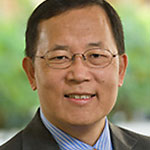
Hak Joon Lee is Lewis B. Smedes Professor of Christian Ethics at Fuller Theological Seminary. Lee has published several books, including “Intersecting Realities: Race, Identity, and Culture in the Spiritual-Moral Life of Young Asians” (edited, Cascade Books), “The Great World House: Martin Luther King, Jr. and Global Ethics” (Pilgrim Press, 2011), as well as numerous articles. He is currently working on two manuscripts under contract: “Discerning Ethics: Diverse Responses to Divisive Social Issues” (coedited with Tim Dearborn, IVP Academics), and “New Covenant Ethics: Methodology and Practice” (Eerdmans). Additionally, in 2007, Lee founded G2G Christian Education Center, a research institute on Asian American Christianity and culture. Through the Center, he has published several contextually grounded curricula for Korean North American youth (English) and their parents (Korean).
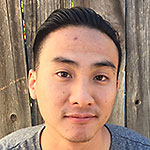
John Enger Cheng serves as creative director of Inheritance. He is a Los Angeles-based artist, designer and illustrator. He graduated from the University of Southern California Roski School of Fine Arts and is co-founder of Winnow+Glean. You can see his illustrative work and store at madebyenger.com.
